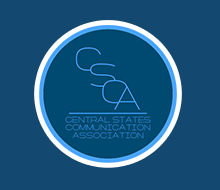Abstract
This study presents the results of two studies using a virtual reality (VR) public-speaking training simulation as an instructional aid in a basic communication course. Results from the first study suggest that VR practice was associated with higher subsequent speech delivery grades in the course compared to no practice. However, VR practice did not reduce public speaking anxiety (PSA). In a follow-up study, VR practice was compared with other forms of lab-based practice including in front of a mirror and a recorded video session. All forms of lab practice (VR, mirror, or video) were associated with higher speech grades than no practice, but there were no differences between lab-practice conditions in terms of outcomes. Results are discussed in terms of adopting and using virtual public-speaking simulations in large undergraduate public-speaking courses.
DOI
10.31446/JCP.2021.1.13
Author ORCID Identifier
Kevin Kryston: 0000-0002-3411-2823
Henry Goble: 0000-0003-2433-2977
Allison Eden: 0000-0003-0846-2739
Recommended Citation
Kryston, K., Goble, H., & Eden, A. (2021). Incorporating virtual reality training in an introductory public speaking course. Journal of Communication Pedagogy, 4, 133-151. https://doi.org/10.31446/JCP.2021.1.13
Included in
Digital Communications and Networking Commons, Educational Methods Commons, Educational Technology Commons, Other Communication Commons, Other Computer Engineering Commons, Other Education Commons


